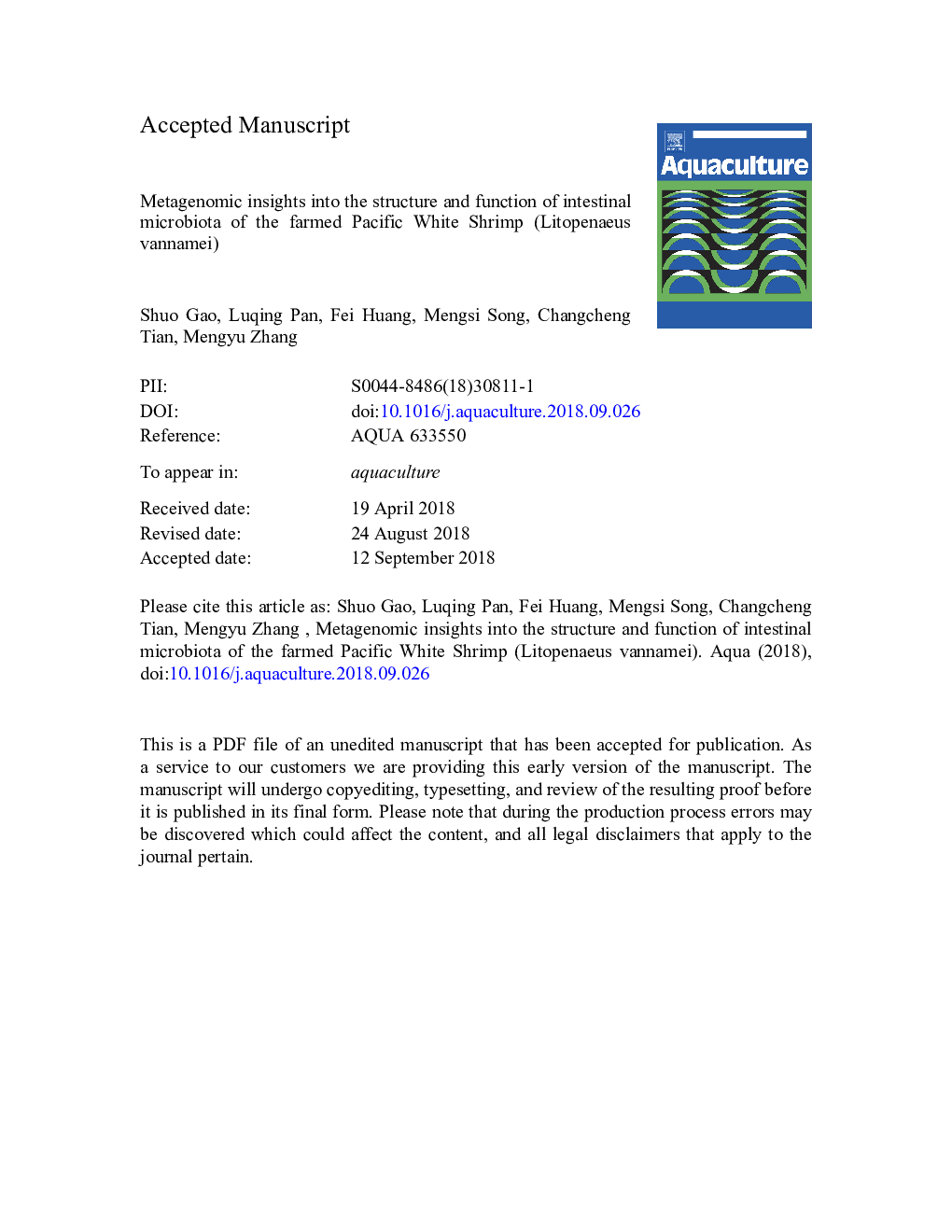| Article ID | Journal | Published Year | Pages | File Type |
|---|---|---|---|---|
| 10158005 | Aquaculture | 2019 | 49 Pages |
Abstract
Intestinal microbiota plays a vital role in host's physiology, development, and behavior. However, these functions in Pacific white shrimp (Litopenaeus vannamei) are still largely unknown. In this study, shrimp from two cultured stages (30 d and 60 d) were chosen to investigate the structure and function of intestinal microbiota by metagenomic technology. Results showed that intestinal microbiota of Litopenaeus vannamei was dominated by Proteobacteria and Firmicutes at both cultured stages, while 1-month-old juveniles showed higher species richness than 2-month-old juveniles. Comparative metagenomic analysis showed all metabolism categories except glycan biosynthesis and metabolism were more enriched in 2-month-old juveniles. In addition, reads in metagenome were annotated to reveal the potential functions of intestinal microbiota. Genes related to digestive enzymes were mainly identified in Vibrio and Pseudoalteromonas, indicating their essential roles in shrimp nutrient digestion. Simultaneously, KEGG pathway analysis demonstrated that acetate was the main form of short chain fatty acids produced in the intestine of L. vannamei, probably suggesting the important roles of intestinal microbiota in shrimp by acetate production. Overall, investigation of the genetic potential opens a new vista for understanding function of the microbiome in shrimp intestine, which may provide valuable information for probiotics screening and application in aquaculture.
Related Topics
Life Sciences
Agricultural and Biological Sciences
Aquatic Science
Authors
Shuo Gao, Luqing Pan, Fei Huang, Mengsi Song, Changcheng Tian, Mengyu Zhang,
